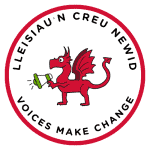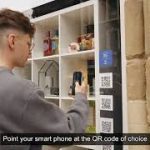Rosemarie and Pat interview transcript
LG:
Hello everyone. It’s day two of Dementia Action Week and we had a really great start to it yesterday and I know that today is not going to be any different. I bring you two very special guests today. Double the trouble and I’m sure double the brilliant answers. I’m joined today with Rosemarie and Pat Williams and they’re going to talk to us a little bit about their story with dementia. For those of you who missed yesterday’s video, the purpose of this series is asking five different individuals, or now six with these two lovely ladies, the same three questions to show that if you’ve met one person living with dementia, you’ve only met one person living with dementia. The way I’m hoping to show this is by showing how different everyone’s answers are during these interviews. Without further ado, thanks very much for joining us today ladies. The first question is, tell us a bit about yourselves. What’s your involvement and your story with dementia?
RW:
It came from the church really. It came from St. Anne’s Church in Caia Park. They were looking for somebody to represent the voice of people with dementia. Pat has always worked in the community, I’ve done quite a bit in the community and we thought we’d go along to the meeting where they were trying to enable parishes to become more dementia friendly. Pat thought she was going along to make a cup of tea and help people.
Get news and info from your local council – sign-up for email bulletins.
PW:
I thought it was to volunteer to befriend somebody with Alzheimer’s, take them out for a cup of coffee in the afternoon. That’s what I thought. Got quite a shock when we got there and they told us we had to do a project.
RW:
We thought we’d ask people themselves so we asked people in the parish in St. Anne’s what they thought would be helpful. We thought, we don’t want to restrict it to the church, we want the wider community involvement. We invited another group of people to come along to learn more about what the needs were for people. For people who are carers for people with dementia. For people themselves. We had great ideas coming forward and one thing, like Pat said, that was really lacking was a simple guide. There’s loads of information out there but it’s not all put together so we got a group of people together to ask them. We did some research on what is it you’d want in a guide. People told us those answers and we came up with the title “Memories” which is very apt. We met some really interesting people along the way which the people informed us. On the 20th, we’re actually launching “Memories”. We’re having a simple local guide and you’re right Luke, we realise that dementia doesn’t define people. People are individuals and people experience, what they experience, are very varied and different ways. By involving people and agreeing that dementia doesn’t define anybody, there’s still some joy to be had in your life. Our first stopping point is this launch of “Memories”, this leaflet that will go in Wrexham.
PW:
From a) How does somebody know that they’ve got dementia? To accessing an assessment and then accessing different services that might be of help to the person who’s got dementia. Also, to the carer. Specifically the carer because they’re under an enormous amount of pressure looking after somebody with dementia. It’s time consuming and it really is exhausting. Especially if they don’t get any respite care as well. That came up a lot in the services from Wrexham County Borough Council, respite care. They just don’t get it. People need respite care if only going to a day centre to allow the carer to be able to go to the shops or get their haircut or something. Even a luncheon club one day a week.
RW:
Sorry Luke. We’re looking then to have this guide which, on the 20th, it will be launched. Then there’ll be a next steps project to “Memories” and we’re going to ask people again to come forward in a very socially inclusive, getting people together, to combat isolation. To burst some of the myths that are around about, well, “people don’t know you if you visit them”. Well, people are left with a very good feeling if you visit them as you know as an ambassador. We’re trying to take away some of the stigma surrounding it. There’s a lot of stigma around dementia, mental health. Actually by being ore open about it, by listening to what people say would be helpful, then we’ll develop a plan of things to do over the next twelve months really.
LG:
That’s fantastic. That project is brilliant. My colleague, Delyth, did tell me a little bit about what you guys were doing and that was another reason why I was really happy that you guys could join me today. It’s because of people like yourselves why this question might be a little easy for you. Obviously, you are a part of this but, myself being a Dementia Friends Champion, I go out and I do awareness sessions. I take part in campaigns like Dementia Action Week and you both are going out with this brilliant idea of the pamphlet. With all this that’s going on, I think I’m going ot get a really good answer from you here, how important do you feel that there are things like this that we’re all doing, that it’s going on in the community, how vital is it that things like this are going on?
RW:
I think it’s important.
PW:
It’s got to be because there’s so many more people now suffering with dementia. Dementia sufferers is just on the increase and it’s going to get worse because people are living longer.
RW:
It’s all of us. There’s no good looking over our shoulder and saying “It’s her next door, it’s him down the road”. If you think about it, with an ageing population, looking at the demographics, it’s all of us. We’re all included. We all know somebody, we’ve all got a friend or a relative that’s affected by dementia and so what we’re about, really, supporting people to stave off some of the signs of it by people having good wellbeing. We’re hoping that our project will, you know, there’s many things going on, many other projects. We hope that this is something that we can offer and, hopefully, other people will join the bandwagon if you like. We’ve already had the offer of volunteers to come along and do things. We know that music is uplifting for people. I don’t know if you saw on the television about the choir, the dementia choir. That was fantastic.
LG:
With Vicky McClure. Yeah, brilliant.
RW:
Who knows? We might have a dementia choir in Wrexham, why not?
LG:
There’s no reason why we can’t.
RW:
No. So, you know, there’s lots of people who’ve got lots of talents to share, including people with dementia. People have got lots of talents and music is one. Only one way through but there are many other ways to touch people so we learn together. There’s lots of learning for all of us.
LG:
Definitely.
PW:
Inter-generational schemes, talking to school children about their war experiences or just saying about their life experiences and they can do that, old people. Even if they’re suffering from dementia because they remember things like that. They’re passing on their knowledge as well to younger people.
LG:
Totally and that leads on to one of the key messages that there is more to the person than the dementia. It’s exactly like what you guys said then that these people could’ve fought in the war. They have still got a story behind the disease. The disease isn’t the person. I’ve spoken to one of the carers in the community and he said very much the same. People don’t talk to the person, they’re talking to the disease and that’s very, very wrong. It’s things like that that need stopping and it’s during these sessions, we get people to think about a positive action to do when you come across someone living with dementia just to make their life a little bit easier. For the people at home, what would you suggest would be a positive action for the people at home?
RW:
I think listening. I think as you’ve just said Luke, people seem to not listen to what’s going on so not having that proper interaction and sometimes talk at people rather than really carefully listening. Everybody, as you said, has a story to tell and we can link in with the history of that person. I visited a person recently who was a farmer, Ken, who’s had a real rich life with his farming and his family and his community and has a lot still to give. We think of people being made up of physical and mental but there’s also that spiritual, that tick, inside all of us and his eyes lit up. He was beaming relating to people on a human level. Listening, we can all do it. It’s free. It’s just time.
PW:
I think as well, for family members, not to argue with the person that’s got dementia. I’ve been to several houses and the old person has said “I want to go such and such a place”, “Oh no you can’t go, you haven’t been there in years” instead of just going along with it and say “Oh yeah, we can go there later on. Have your dinner first and we’ll go there later” because they will have forgotten about it then but just don’t argue with them because it gets them agitated and you get yourself agitated as well. It doesn’t do either of you any good.
LG:
No and those are two really important ones and thanks for sharing them ones. Thank you for your time today. It’s been brilliant. I’ve got to say, the very, very best of luck with the pamphlet. If you need a volunteer, hit me up, I’ll roll my sleeves up.
RW:
I’ll put your name down Luke.
LG:
You stick that name down there, I’ll roll my sleeves up. I’d be delighted to come and help you. Ladies and gentlemen, I’ve had two fantastic guests on today as you’ve seen for yourselves and it’s only aiding what we’re doing this week. A big, big thank you to Rosemarie and Pat for their time today and thank you guys for tuning in. Keep wearing your Dementia Friends badge with pride and we’ll see you on the nest one. Thanks very much everybody. Thanks both.
RW:
Thank you. Take care, bye.
[button color=”” size=”large” type=”square_outlined” target=”new” link=”https://public.govdelivery.com/accounts/UKWCBC/subscriber/new?topic_id=UKWCBC_5″]SIGN UP[/button]








